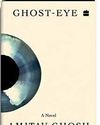Hunting with Dolphins
June 2023
|Reader's Digest India
An extraordinary encounter reveals how environmental neglect endangers more than just our non-human neighbours

It is the final week of February 2017, the last of the dark nights in the hunting season on the Brahmaputra. The sun is down, leaving behind a rose-pink sky that fades to purple, then indigo, which ultimately turns an inky black. We can't see a thing. Not the horizon, nor the moon, the stars, not even a hand held in front of our faces. It is as if the world were doused in Japanese ink.
My friend and I are inching up the massive river with two fishermen, Lekhu and Ranjan, in their long, low-slung dinghy. It is the dry season; the river's shallow course here is braided with sandy shoals.
Lekhu and Ranjan are among the last of their tribe in Assam-handheld harpoon fishermen who fish on the blackest nights of the dry season, when the river runs clear and low. What makes them special is that they fish alongside the Gangetic dolphins.
Now the boat bumps up against something and runs aground. We step onto a silt island-a chapori. It is neither land nor water, neither predictable nor permanent. It rises as the silt piles up and submerges as the river current erodes it, carrying the silt away; it gives, it takes back.
These fertile chaporis come in varying degrees of robustness, depending on the amount of silt accreted and the vegetation anchoring the outcropping to the bed. Adventurous risk-takers settle on the larger, more robust ones. A chapori belongs to no government or individual; it exists on no map. Google, in fact, tells us we are in the middle of the main stem of the Brahmaputra. The chapori we are on will, in all likelihood, disappear in a few months, as the river swells during the next monsoon.
هذه القصة من طبعة June 2023 من Reader's Digest India.
اشترك في Magzter GOLD للوصول إلى آلاف القصص المتميزة المنسقة، وأكثر من 9000 مجلة وصحيفة.
هل أنت مشترك بالفعل؟ تسجيل الدخول
المزيد من القصص من Reader's Digest India

Reader's Digest India
Speaking of History by Romila Thapar, Namit Aroram, Penguin Random House, India
Romila Thapar is one of India's most accomplished historians, her work on ancient India being particularly well-received and a part of university curricula around the world.
1 min
December 2025

Reader's Digest India
ME & MY SHELF
Ranjeet Pratap Singh is the co-founder and CEO of Pratilipi, the largest Indian language digital storytelling platform with over 9,50,000 writers in 12 languages and over 30 million monthly readers. Singh was part of the Forbes 30 Under 30 list in 2018.
3 mins
December 2025

Reader's Digest India
HUMOUR in UNIFORM
While our frigate was taking on supplies at sea from a British ship, I noticed three of their sailors pointing to our destroyer’s squadron crest, which was proudly mounted on the side of our ship.
1 min
December 2025

Reader's Digest India
Obeshwar by A. Ramachandran, Oil on canvas, 2022 78 x 192 inches
One of independent India’s preeminent artists, A. Ramachandran (born in 1935), passed away last year, following a long and distinguished career.
1 min
December 2025

Reader's Digest India
Memes for Mummyji by Santosh Desai, HarperCollins India
Santosh Desai, one of Indian advertising's leading lights for over two decades, has a well-earned reputation for spotting cultural trends in Indian cities, as evidenced by his previous book Mother Pious Lady.
1 min
December 2025

Reader's Digest India
Ghost-Eye by Amitav Ghosh, HarperCollins India
In Amitav Ghosh's first novel since Gun Island (2019), we meet a young Marwari girl named Varsha Singh living in Calcutta in the 1960s with her strictly vegetarian family.
1 min
December 2025

Reader's Digest India
"Good Songs Stay Written ..."
Rock legend Bruce Springsteen on music as a time machine, responsibility in the family, and the situation in the USA
3 mins
December 2025

Reader's Digest India
WHEN COMPUTERS WERE FEMALE
THE PIONEERS OF PROGRAMMING WERE SIX WOMEN
6 mins
December 2025

Reader's Digest India
I Am My Mother's Older Brother
As the onset of dementia reshapes their world, a daughter becomes her mother's carer and keeper while navigating grief, duty, and unwavering love
7 mins
December 2025

Reader's Digest India
Small Changes Big Results
While motivation gets us started, discipline is what keeps us going.
3 mins
December 2025
Translate
Change font size

